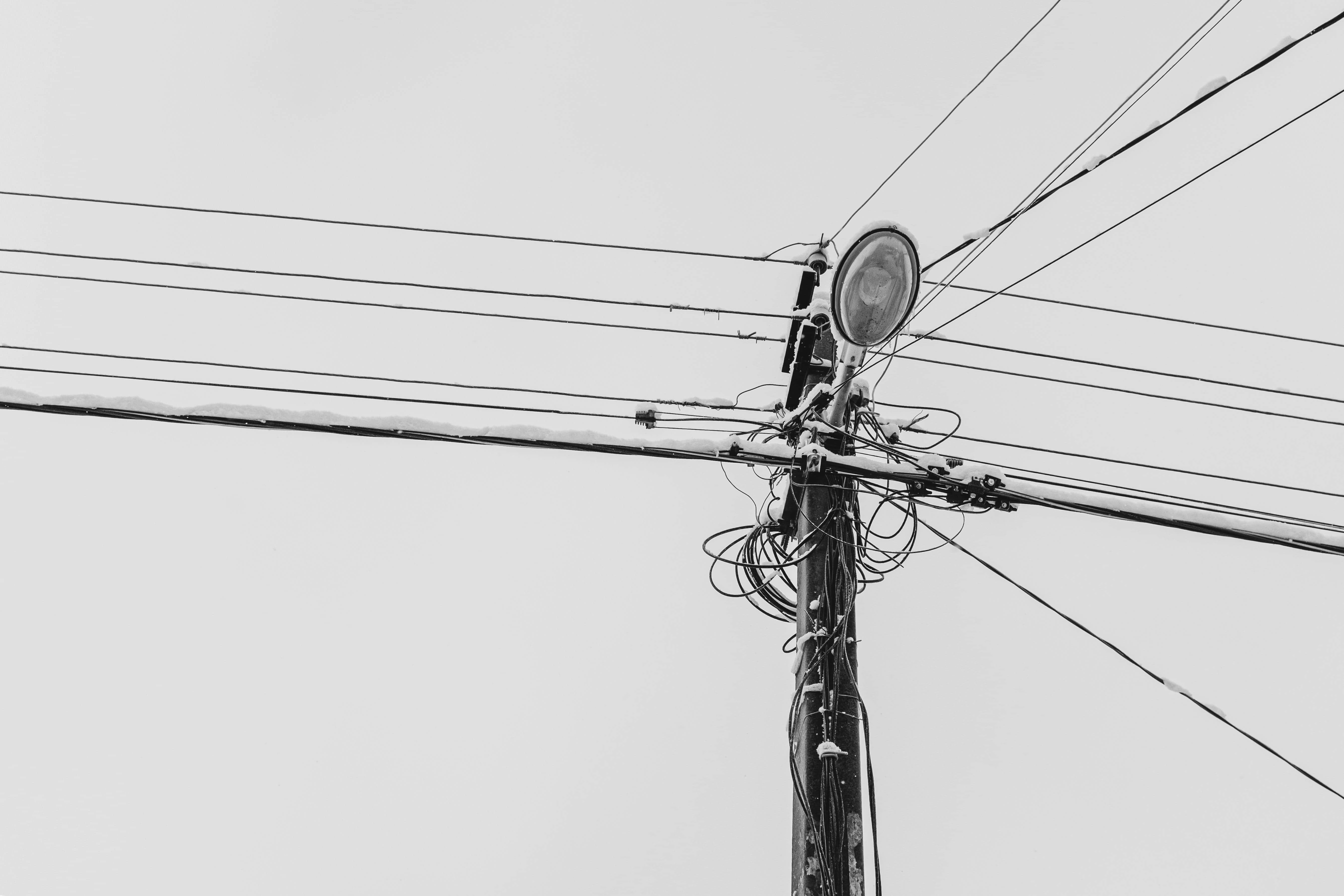
Texas Energy Deregulation
Everything you need to know about Texas energy deregulation.
The electric industry has gone through many changes in the 21st century, including the decision many states have made allowing electric industries to participate in a competitive market. This process, known as deregulation, empowers consumers to find lower rates for utilities and reduces the rates of renewable energy resources. Among these states, The Lone Star State is widely regarded as a leader in competitive rates, renewable energy options, and unique energy plans for it's residents.
Texas Electricity Deregulation Facts
Texas is the largest deregulated sector in the U.S., and most Texas residents choose their electricity provider. The electricity industry in Texas has evolved significantly due to the creation of a deregulated electricity market, which allows consumers to select from multiple providers and plans. The Texas market is unique compared to other states, offering increased competition and innovation as a result of deregulation. Learn more about Texas electricity deregulation and how it can affect you.
1. Most, But Not All, Texans Have Electric Choice
While 85% of Texas residents live in deregulated energy markets, there are several cities and areas of Texas that do not have a deregulated retail electricity market. Deregulated areas allow consumers to choose from multiple retail electricity providers, while regulated areas typically have a single provider and less competition. Deregulated cities in Texas include major urban centers like Houston, Dallas, Fort Worth, and Corpus Christi, while some larger cities remain regulated.
The largest cities in Texas that remain regulated are Austin, San Antonio, and El Paso. Many regulated areas are served by municipal utilities, municipally owned utilities, electric cooperatives, or investor owned utilities. Municipal utilities and municipally owned utilities are non-profit entities owned by the city, while electric cooperatives are member-owned and serve rural regions. Investor owned utilities, on the other hand, are for-profit companies operating under state regulation.
If you are unsure if you live in an area with a deregulated market, you can use our ESIID lookup tool to find out along with lots of other useful information.
2. Most Texas Residents Have Several Different Energy Plans to Choose From
85% of Texas residents live in deregulated energy markets. The ability to select an energy plan based on your lifestyle and unique needs is one of the deregulated market's significant benefits. Many of the most popular energy plans include:
- Fixed-rate plans: With fixed-rate plans, customers pay the same rate each month. A fixed-rate plan is not affected by market fluctuations, and these programs are excellent for customers looking for a plan with stability and security.
- Variable-rate plans: A variable-rate plan will change depending on market fluctuations. With a variable-rate plan, you may initially find a cheaper rate that could spike in price as the market rises. These plans don't require a contract and are ideal for customers who are looking for flexibility and are comfortable with risks. Generally, we do not recommend variable-rate plans for most people.
- Green energy plans: Texas is a leader in green energy with wind, solar and other renewable resource options. These plans allow customers to offset their home or business' carbon emissions with green energy.
- Prepaid plans: When you shop for energy plans, many providers will ask for a deposit before providing service. Prepaid energy plans do not require a credit check or deposit and allow customers to pay for their energy in advance.
3. Texas Is a Large Producer of Renewable Energy
While Texas is most famous for its coal and oil industries, this state is also notable for its renewable energy production. In the U.S., Texas is a leading producer of wind energy and solar power. As a result, customers across Texas can choose green energy plans.
Every Texas electricity plan uses a percentage of green energy. Check the Electricity Facts Label provided with your energy plan to find the specific percentage and other details about your service.
4. Energy Deregulation in Texas Has a Unique History
If you're interested in when Texas deregulated electricity, it's important to consider Texas's long and unique history with electricity production and regulation. Texas electricity regulation dates back to World War II. At that time, utility companies created the Texas Interconnected System (TIS), which provided power to factories aiding the war effort. The TIS quickly determined that a connected power supply system generated lower prices for customers and continued using the system after the war.
In the 1970s, the TIS became the Electric Reliability Council of Texas (ERCOT), which continues to oversee grid reliability and ensure no buyer or seller gains an unfair advantage. In 2002, Texas passed a law to deregulate electricity for its citizens. This decision allowed the majority of the state to choose fast, affordable and reliable energy to fit their needs.
5. Texas Has Its Own Power Grid
Unlike other states, the State of Texas controls its own power grid. After Congress established the Federal Power Act in 1935, Texas utilities agreed not to extend their power grids outside state lines. This decision allows Texas utilities to retain their freedom and avoid regulation from the Federal Power Commission.
ERCOT is beyond the reach of federal regulation and has four primary responsibilities that drive the deregulated market in Texas. These responsibilities include:
- Maintaining a reliable system.
- Creating a competitive wholesale market.
- Enabling a competitive retail market.
- Allowing access to transmission.
6. All Residential Customers Receive an Electricity Facts Label (EFL)
The Public Utility Commission of Texas (PUC) requires Retail Electricity Providers (REPs) to provide their customers with an Electricity Facts Label (EFL) for each of their plans. This information makes it easier to select an energy plan that fits your needs. With this label, customers can quickly find answers to their questions about how much their electricity usage costs per month and whether their plan rate is fixed or variable.
An electricity facts label also provides information such as:
- Electricity price.
- Special rates.
- Length of contract.
- Termination fees.
- Renewable energy content.
Commercial electricity plans do not have an EFL. Business owners should read their contract thoroughly to understand the rate their getting. Luckily, EnergyBot makes it easy for businesses to find commercial energy plans that don't have variable rates or other tricky terms.
Who manages the electric grid in a deregulated electricity market?
While the Texas electricity market is deregulated, that doesn't mean individual retail electric providers (REPs) are managing the power lines during an outage. Instead, local utility companies continue to maintain energy plants, transmission lines, and are responsible for delivering electricity to your home. Although energy consumers purchase electricity from an energy provider, the electric grid is still managed by utility companies.
Challenges of Energy Deregulation in Texas
While energy deregulation in Texas has brought many benefits, it also presents several challenges for both consumers and the electricity market as a whole. One of the biggest concerns is price volatility—during extreme weather events, such as heatwaves or winter storms, electricity rates can spike dramatically, leading to unexpectedly high bills for customers that have a variable rate plan. This unpredictability can make it difficult for consumers to budget for their energy costs.
Another challenge is the complexity of the deregulated market. With so many electricity providers and plans to choose from, it can be overwhelming for consumers to compare options and find the best deal. This is made more confusing by unique price structures, often designed to make energy rates appear cheaper than they actually are. Additionally, the lack of uniform regulation in some areas can result in inconsistent service quality and reliability.
To address these issues, the Public Utility Commission of Texas (PUCT) and the Electric Reliability Council of Texas (ERCOT) work together to monitor the deregulated market, protect consumers, and ensure a reliable supply of electricity. Their oversight helps maintain the balance between competition, fair pricing, and dependable service, even as the Texas energy market continues to evolve.
Find the Energy Plan That Works for You With EnergyBot
A deregulated energy market allows customers to find the lowest rates. At EnergyBot, we make comparing electricity plans easy. As the only online energy marketplace that is 100% tech, our algorithm can quickly compare rates to match residential and commercial customers with the lowest energy rate available in your area.
EnergyBot makes shopping for energy plans transparent and straightforward. To learn more about how we can help you start saving money, contact us today.
Written by Thad Warren
Thad is a native Texan who has worked in the energy industry for just over 5 years.
Connect
Recent Posts
Road to Recovery: Fort Worth homeowners receive $27 million after 2021 Winter Storm Uri
Fort Worth residents are still recovering from the havoc caused by Winter Storm Uri in 2021, but now relief is on the horizon in the form of $27 million in grants.
September 2025

3 minutes

PPL Electricity Rates Climb Ahead of the Holiday Season
December 2025

4 minutes

Unlimited Electricity Plans in Texas: Here’s What it Actually Costs
Searching for unlimited electricity plans in Texas? On the surface, they sound perfect: one flat bill, no matter how much power you use.
August 2025

4 Minutes



